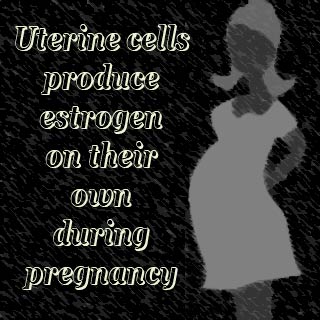
This is noted to be the first time that the uterus has been identified as an endocrine organ. Seemingly, the local estrogen is believed to be vital in sustaining the development of the blood vessels in the uterus. Now, these experts discovered that following the implantation of the embryos, this estrogen collaborates with progesterone secreted from the ovaries to prompt the differentiation of uterine stromal cells (decidualization). Apart from this, it was also noted that they urged the development of blood vessels which were instrumental in supporting the growth of the embryo.
Apparently, during decidualization these experts observed that the mouse uterine stromal cells elevated their expression of the P450 aromatase enzyme. This is noted to be an enzyme that in unison with the other enzymes allegedly converts androgens into estrogens.
More so, in the pregnant mice that had removed their ovaries, it was noticed that uterine estrogen production could possibly aid in the development and differentiation of the blood vessels and tissue required for sustaining pregnancy. Thereby, suggesting that progesterone supplementation may be needed and thus local estrogen alone may not be able to sustain pregnancy.
Bagchi explains, “During pregnancy, the ovaries would need to secrete a high level of estrogen to ensure that the right amount of estrogen is present in the uterus to support decidualization. You can imagine that if the estrogen level goes high systemically, it could have a deleterious effect on pregnancy itself by antagonizing the progesterone action.â€
Another indication that pregnancy may depend upon the development of estrogen in the uterine cells was that obstructing the aromatase activity with an inhibitor even resulted in the obstruction of decidualization. Keeping these observations in mind, Bagchi stated that other than depending on the ovaries, it may be more beneficial to develop the essential amount of estrogen precisely where required.
Seemingly, these findings may also be useful in the studies of endometriosis, where the growth of endometrial tissue gives rise to lesions.
These findings have been presented in the Proceedings of the National Academy of Science.
